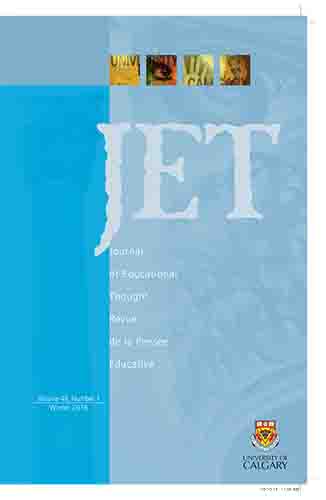Democracy, Education and The Public Space: When Do Students Become Citizens? A Teacher’s Reflections on a Political Protest at School
DOI:
https://doi.org/10.55016/ojs/jet.v49i1.46298Abstract
This article describes a funding announcement by the prime minister of Canada at a high school in Winnipeg in February of 1998. The announcement was interrupted by a student protest, one that invoked harsh public criticism. Written from the perspective of a high school social studies teacher of 24 years, and drawing on eminent philosophers of politics and education, the paper discusses several implications for the practice of democracy and the involvement of youth in the public arena. The author concludes that youth involvement in public protest should be seen as an act that preserves democracy and one that serves as citizenship pedagogy. If so, teachers must navigate a pedagogic dilemma at the heart of citizenship education. Given the recent passage of Bill C 55 by the Canadian Parliament and the questions it raised over the role of public dissent, this discussion may be as relevant and necessary today as it was in 1998.
Downloads
Published
Issue
Section
License
The Journal of Educational Thought retains first publication rights for all articles. The Journal grants reproduction rights for noncommercial educational purposes with the provision that full acknowledgement of the work’s source be noted on each copy. The Journal will redirect to the appropriate authors any inquiries for further commercial publication of individual articles. All authors wishing to publish in JET will be asked to fill in and sign a Consent to Publish and Transfer of Copyright agreement.
Authors must affirm that any submission to JET has not been and will not be published or submitted elsewhere while under considration by JET.

